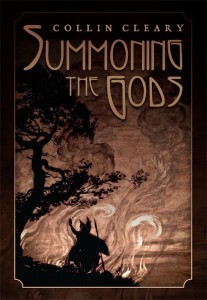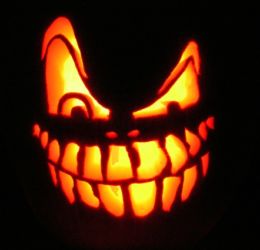The War on Halloween
Posted By Thomas Steuben On In North American New Right | Comments DisabledHalloween is my favorite holiday. Who doesn’t love chocolate and pumpkin flavored everything? Halloween’s metaphysical tones always appealed to me even before I consciously identified as a blood-and-soil nationalist. It is a time of fiery foliage, fertile pumpkin patches, and intriguing mists, It is perfect for rereading a bit of Lovecraft or Poe.
I find Halloween a soothing, tranquil time of year. There’s no pressure. You can do as much or as little as you want, and what you want. Its difficult to appreciate the spirit of Christmas amidst a flurry of activity. Halloween, and really the entire month of October, feel like an open invitation to enjoy the time without demands.
We already know about the war on Christmas via secularization and commercialization. But there is also a war on Halloween. It is quieter and more sinister, but it is a war nonetheless.
The principal direct attack on Halloween has been through tacky horror movies. Like modern “art,” they elevate ugliness for its own sake. They are also full of stupidity and cowardice which are inimical to the European spirit. Not all horror movies are like this. Some, such as Sleepy Hollow and Bram Stoker’s Dracula, are genuinely artful. But these are exceptions and not the norm.
Tacky horror films are a form of blasphemy, because Halloween is actually a religious holiday. Its proper name is All Hallows’ Eve in the Christian tradition, with its true roots running much deeper to Celtic Samhain. This was when the veil between our world and the Otherworld was thought to be at its thinnest. Halloween’s underlying meaning is veneration of our ancestors, pondering the mysteries of death and magic, and reaping the bounty of autumn’s harvest. In this light, most horror films purposefully mock our heritage, such as Sarah Silverman’s and Seth Rogen’s Santa Inc.
 [2]
[2]You can buy Collin Cleary’s Summoning the Gods here [3].
There is also the decline in trick-or-treating. I have a lot of nostalgia for it, and for a long time considered the decline in trick-or-treating to be a symptom of the same sort of parental overprotection that undermines society by producing weak citizens. I have completely reversed my opinion on this, however, as we are no longer in the 1990s.
Due to demographics, drugs, and degeneracy, there are very few neighborhoods in which I would feel comfortable letting kids wander around after dark or accept candy from strangers. The old saying that “the past is a foreign country; they do things differently there” never hit so hard. It is a mark of America’s catastrophic failure that trick-or-treating must be added to the list of nice things [4] we can’t have anymore. Thankfully, “trunk-or-treating” and other innovations are keeping our traditions alive through the gloom.
Alas, even pumpkin spice lattes are not safe anymore. The Washington Post — which itself is as decrepit as a zombie — ran an article [5] complaining about the colonial legacy represented by nutmeg and other spices. Somehow, we whites are simultaneously guilty of not seasoning our food and of colonizing other peoples for their spices. They are now trying to poison even our pumpkin spice lattes with white guilt.
Why is Halloween and the broader season of Faustian Fall the target of so much subversion? It’s because they’re as implicitly white as It’s the Great Pumpkin, Charlie Brown.
The decline of Halloween plays into a broader narrative that “white people have no culture.” This assertion is not true. This is so firstly because people of all races swim in white culture to the point that they no longer notice it any more than a fish notices water. Secondly, it is because those subversives who assert we have no culture are often the same ones who either actively destroyed out culture, commercialized it before selling it back to us as a cheap knockoff (this is especially true in the case of Christmas), or who encouraged it to whither away by allowing mass social decay.
We must rediscover how Europeans — and yes, even the Anglo-Saxons — are as ethnic and exotic as the non-whites featured in travel magazines. Halloween is our peculiar folk custom. Trick-or-treating was our outlet for dressing in costumes and decorating our homes, hanging out with our neighbors, and of course eating candy (and maybe playing some tricks on each other). It was our way of venerating our ancestors. It was our happy harvest festival.
I hope Halloween will see a resurgence as white Americans become interested in their heritage again.
